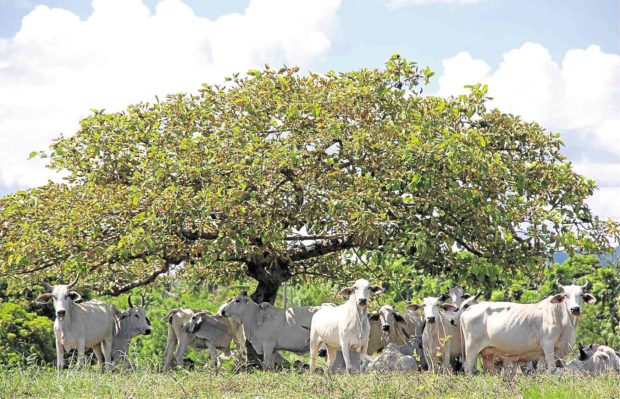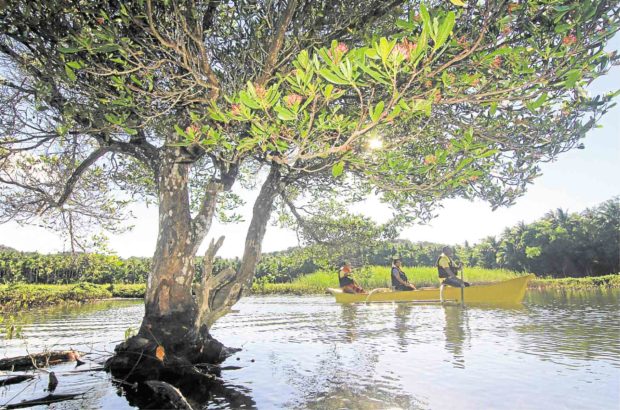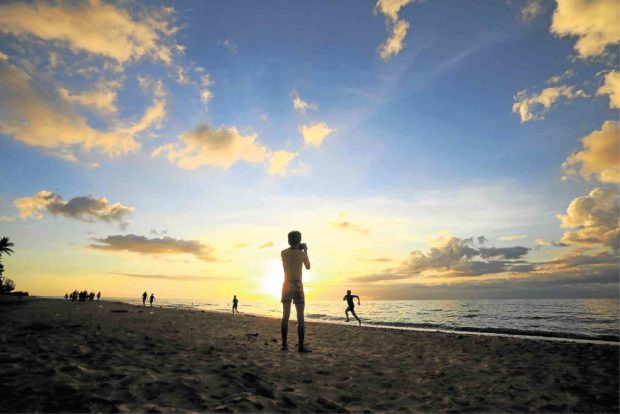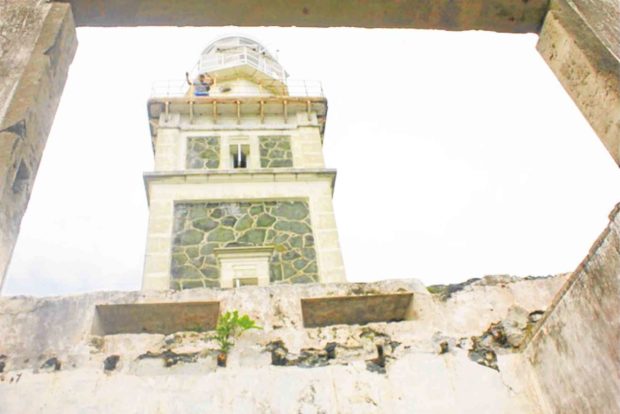Masbate beyond cattle, cowboys

CATTLE COUNTRYWith an estimated 40 percent of its land area devoted to pasture lands, Masbate has become the leading cattle-growing province in the Bicol region. —NIÑO JESUS ORBETA
(First of two parts)
There is more to discover and experience in Masbate than cattle and cowboys. It is also a fishing province, with all 20 municipalities and one city hugging the seas.
Archaeological, historical and natural wonders weave colorful stories of its mountains, rolling hills, plains, unspoiled beaches, mangroves, riverways and the undersea.
Its three major islands — Masbate, Burias and Ticao — also tell the story of a resilient people who remain cheerful, hopeful and hardworking despite the odds they face.
From the capital of Masbate City, visitors can head out to the more interesting nature spots.
Article continues after this advertisementZigzag road to Mandaon
Article continues after this advertisementThe drive going out to Mandaon town, 62 kilometers southwest from the city, follows a scenic winding road that skirts the swampy coves of mangrove forests that are thinning out to give way to fishponds and sea reclamation for informal settlements.
After the welcome arch to Milagros town, cattle ranches are visible along the highway. The new municipal building complex atop a hill offers a panoramic view of the knolls, farmlands and the sea.
A junction called “Crossing Tawad” leads to the winding zigzag road, cut into the mountain ridges between Milagros and Aroroy. A view deck at a stopover has the best view of the ridge, which sometimes include white specks of cattle grazing miles away.
Bat-ongan Cave
Down to the plains toward the junction of Barangay Mabato-bato is the signage to Bat-ongan Cave, a limestone monolith that was a pagan burial site and a dwelling place of the prehistoric Bicolanos.
Among the artifacts discovered by archaeologists in the 1920s and later thoroughly studied in the 1950s were pottery ornaments and design similar to the Kalanay assemblage also documented in the nearby town of Aroroy.
The intricate incision (designs) proves that a flourishing civilization was present in Masbate 2000 years ago (756 B.C.) that falls to the Late Neolithic age.
The cave has three cavities — the biggest shaped like a cathedral dome, another big enough for a cockpit arena and the last resembling a house layout with unique chair- and table-like limestone formations.
Some consider the cave mystic. Faith healers go there on a pilgrimage on Good Friday, believing that their healing powers will be renewed.
After construction of the Bat-ongan Bridge was completed in late 2017, the Mandaon tourism council launched the Mandaon All-Terrain Vehicle and Outdoor Adventure for a drive around the cave to the Bat-ongan Falls.
In Barangay Cabitan, the only agricultural college in the province, Dr. Emilio B. Espinosa Sr. Memorial School of Agriculture and Technology, developed an eco-park hill view of the campus and the rolling environs.
The highway is being widened to prepare for a ferry port connection to Roxas City in Capiz province, which aims to shorten the current four-hour sea crossing of big bancas.
A new highway is being finished to cut travel time between Mandaon Port and Balud town. The 15-km Bon-oco-San Juan highway is a scenic drive of hilly pastures and ranches, including Sese Brahman’s, which is open to the public for horseback riding and hilltop camping, complete with a tent, shower room, toilet and bath, and videoke bar.
Palani Beach
A road junction before the Balud town center points to Palani Beach, a 10-km stretch of fine white sand on gentle slope that is swimmer-friendly.
Resorts are sprouting as the beach gains popularity. At Paraiso de Palani, guests may cook their own food in the kitchen or order meals.
For a historical adventure in Balud, go to El Faro de Isla Jintotolo or Jintotolo Island Lighthouse, in Barangay Cantil.
Built in 1895 and activated in 1900, it is one of the 24 original first-order lighthouses erected by the Spanish colonial government in the archipelago as a navigational guide to boats passing by and coming into this side of Masbate province.
The island is a short boat ride from Barangay Calumpang, which is a one-hour bike ride from the town center. Passenger boats from Roxas City stop on the island’s Cantil beach, which is a 15-minute walk uphill on gently ascending slope to the lighthouse.


